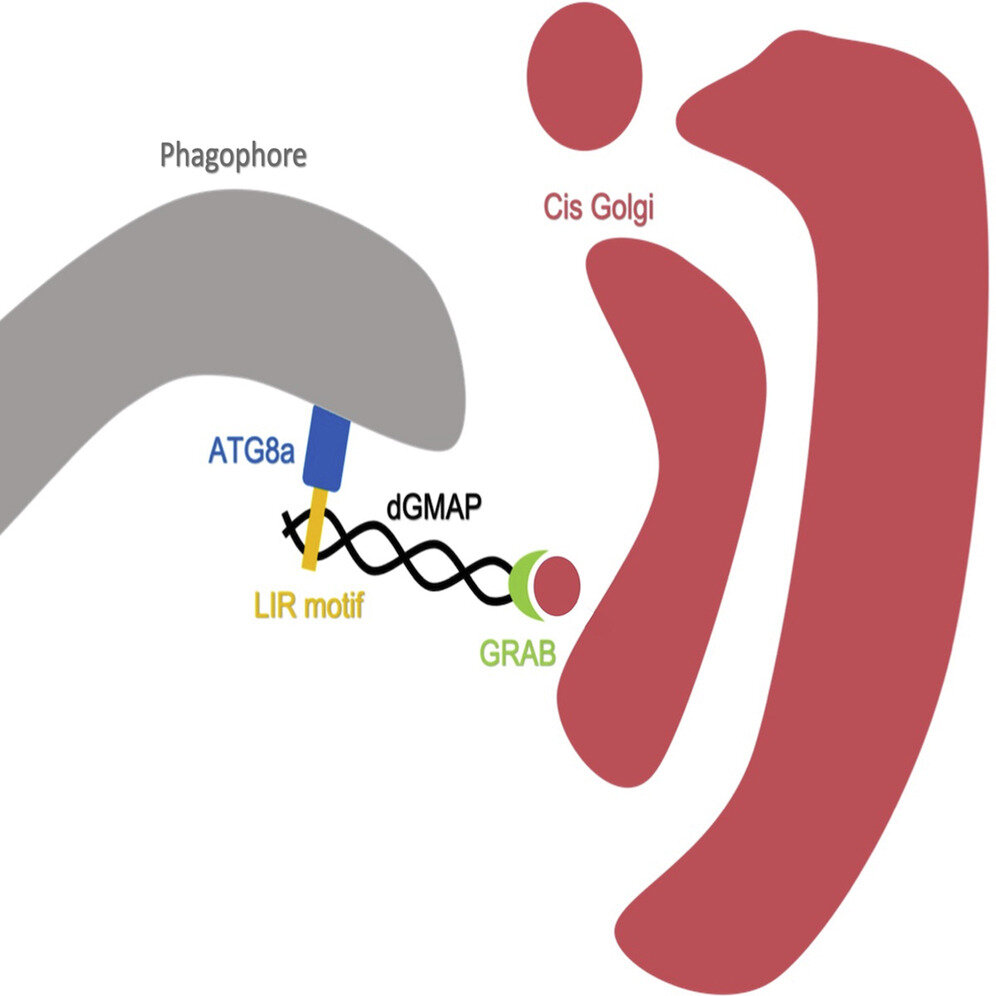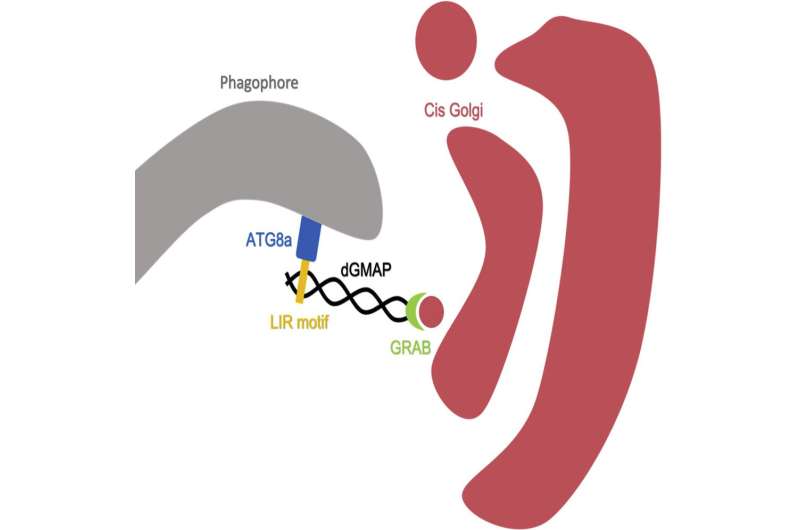

The study of autophagy—the recycling and repair process within cells—has huge potential to aid in fighting the aging process, bacterial and viral infections and diseases including cancer, Alzheimer’s and Parkinson’s.
A team of researchers led by Professor Ioannis Nezis from the School of Life Sciences at the University of Warwick, has identified the molecular and cellular mechanisms that regulate selective autophagy in the fruit fly Drosophila melanogaster.
While the function of these processes is increasingly understood in mammals, this is one of the first studies in insects.
The study opens new avenues in our understanding of the regulation of Golgi complex turnover by selective autophagy. The Golgi complex is a stack of flat sacs formed by membranes inside the cell. It prepares proteins and fat molecules for transportation and use in other places inside and outside the cell.
Professor Nezis and his team used gene editing, confocal and electron microscopy to identify a novel type of selective autophagy, termed Golgiphagy, meaning how cells degrade a cell organelle called Golgi complex by autophagy.
In the paper, “GMAP is an Atg8a-inteacting protein that regulates Golgi turnover in Drosophila’ published today in the journal Cell Reports, Ph.D. students Ashrafur Rahman, Raksha Gohel and colleagues describe how gene editing was used to create fruit flies unable to process specific proteins by autophagy.
Comparison of the gene edited flies with their wild type counterparts showed:
- That Atg8a’s LDS docking site is important in the execution of selective autophagy
- That selective autophagy regulates the size and morphology of the Golgi apparatus
- That the GMAP (Golgi microtubule-associated protein) protein interacts with Atg8a and the LIR motif at position 320-325 is important for this interaction
- That GMAP’s LIR motif is important Golgiphagy
Lead author of the research Professor Ioannis Nezis from the School of Life Sciences at the University of Warwick, said, “Understanding the molecular mechanisms of selective autophagy of Golgi complex in cells will help open new avenues of research that will assist [in] elucidating the underlying cellular mechanisms of diseases.”
Scientists discover how cells respond to fasting
Ashrafur Rahman et al, GMAP is an Atg8a-interacting protein that regulates Golgi turnover in Drosophila, Cell Reports (2022). DOI: 10.1016/j.celrep.2022.110903
University of Warwick
Citation:
Researchers identify novel cellular process that helps us understand the mechanisms of aging-related diseases (2022, May 31)
retrieved 31 May 2022
from https://phys.org/news/2022-05-cellular-mechanisms-aging-related-diseases.html
This document is subject to copyright. Apart from any fair dealing for the purpose of private study or research, no
part may be reproduced without the written permission. The content is provided for information purposes only.